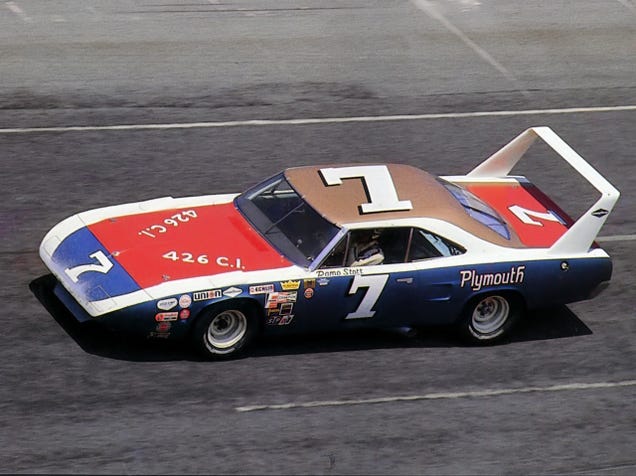I'm staff writer for my school's newspaper 'The Eagle's Eye'. I'm writing this piece about NASCAR and how it's not really stock car racing and how actual stock car racing could promote development as it did in the past. Here's what I have:

Sure, Toyota might say their current stock car is a Camry, but Toyota has never mass produced a rear wheel drive V8 solid axle Camry with a tube frame and fiberglass body. Which brings up the question: how is this a stock car?
Dictionary.com defines a stock car as "a standard model of automobile changed in various ways for racing purposes." By definition these purpose built racers we see in NASCAR are not infact stock cars, they're race cars. But why are they called stock cars? Early auto racing used open wheeled race cars, built from the ground up specifically for racing circuits.
These vehicles were complex and expensive to build. As popularity grew more people wanted to enter races but couldn't due to the high cost of building a car. Open wheeled racing began to be seen as an aristocratic sport, one that the average man couldn't compete in. People were frustrated by this, so by the 1920s small dirt tracks across the South East were hosting races that allowed the entry of production vehicles.
In 1948 NASCAR was founded as a sanctioning body for stock car races. One of the first NASCAR series was the Strictly Stock series, which was a race exclusively for late model cars, unmodified (not to say that all teams followed this rule) with the exception of crude safety equipment.
This requirement to remain unmodified drove manufactures to produce faster cars. Similar to the development induced by NASA in landing in the moon NASCAR stimulated technological growth within the automobile industry.
Manufacturer's benefited from their participation not only by having a more refined product but by the marketing strength that came with winning races. Bob Tasca, a Rhode Island Ford dealer and racing team owner coined the term "Race on Sunday, sell on Monday".
NASCAR regulation originally required manufacturers to sell at least 500 cars to be considered stock and later one for every two dealerships...
This is all I have so far. If I messed up a part of NASCAR history or I'm just wrong feel free to tell me. Complements are also accepted.


No comments:
Post a Comment